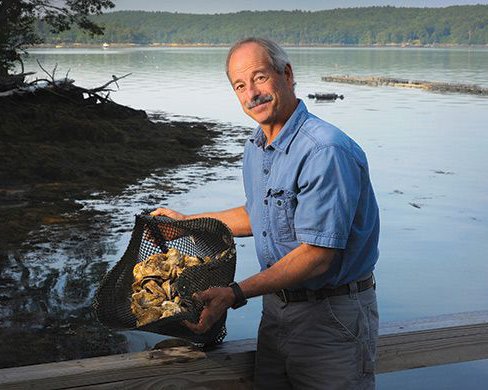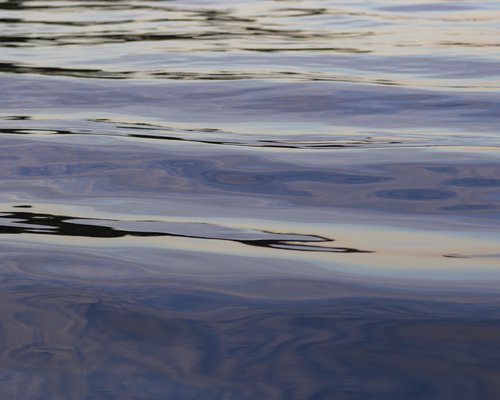The Essential Start Guide to Maine Aquaculture
Outlining the rich opportunities and the overlooked realities of starting an aquaculture business in the state of Maine.
01 – Do Your Research
Learn the basics of business planning, markets, species, gear types, and regulations to start a successful aquaculture business.

-
Seek Out Training/Mentoring
Various organizations in the state offer one-on-one counseling, aquaculture-specific technical training programs, and even basic business t…
-
Begin Your Business Plan
A sound business plan should establish a business model, set operational goals, and provide insight into the profit potential of your opera…
-
Understand the Markets
Price. Demand. Competition. Do you have a handle on these factors? Grounding your business in an understanding of the market allows you to …
-
Know Your Species
Every species requires specific environmental conditions to flourish. Your farm’s water needs to provide the right conditions to ensure hea…
-
Learn the Gear
Aquaculture gear types are species-specific and vary drastically in cost, site requirements, required labor, upkeep, and longevity. Gear wi…
-
Learn the Rules
In order to select a good location for your sea farm, you need to understand what the regulating agencies do and do not allow. If you under…
-
![]()
Industry Perspective
Rookie Mistakes
Everyone makes rookie mistakes in the beginning. Here are some learned lessons from Love Point Oysters to help give you a head start.
02 – Select Your Site
Key decisions must be explored before deciding on a site. The process is rigorous, mistakes can be costly, and poor planning can set you back years.

-
Community Engagement
One of the most common mistakes of aspiring aquaculturists is neglecting the community aspects of site selection. Nothing sinks an applicat…
-
Operational & Environmental Site Considerations
First you needed to understand the existing activities in the area, and now you’re ready to find a site with the environmental and operatio…
-
Public Health
Biotoxin and bacterial closures are a key consideration when selecting a site because they can prevent you from selling your shellfish duri…
-
Finalize Your Business Plan
Congratulations! At this point you’ve done your research into markets, species, and gear and found a location with good growing conditions…
-
Consider Business Structure
Just like any other company, owning an aquaculture business carries legal and financial risks. Before applying for a lease, it’s wise to es…
-
Apply For Your Site
The last initial step for starting a sea farm is to apply for a lease or LPA. The application process can seem intimidating, but it’s all i…
-
![A man stands next to a body of water while holding a net full of shellfish.]()
Industry Perspective
Being a Good Aquaculture Lease Applicant
Tips on getting through the lease hearing process from a veteran oyster farm owner.
03 – Get Funding
Financing is personal. As a relatively new and quickly evolving industry in the U.S., financing programs specific to aquaculture are not yet mainstream with most lenders and investors. Here, we lay out the basics.

-
Grants
Grants can be a great fit — if they align with your business goals. Be aware that there is a rigorous application process, and once issued,…
-
Capital (Loans)
A loan is a sum of money you borrow from a bank or a credit union that is issued if your credit rating and/or current ability to repay the …
-
Risk Management Tools
Crop insurance and revenue protection are purchased to help protect you farm from losses due to natural disasters and/or revenue declines. …
-
Investment (Equity & Debt)
Individuals or companies can provide capital for starting businesses in exchange for ownership or debt with interest.
04 – Running Your Farm
Plan ahead — ensure seed and gear arrive in time for peak growing season. Keep detailed records of the location, density, and growth rates of your crops.

-
Seasonality
Sea farming is seasonal, and unless you get lucky, the timing of your lease being granted is unlikely to align perfectly with seasonal need…
-
Seed
You need to plan ahead to make sure seed stock is available for the growing season. Without a lead on seed, you could end up missing the en…
-
Gear & Husbandry
At this point, you already have a plan for the gear type, layout, and installation – since this is required information to get a lease or L…
-
Production Planning & Tracking
Optimizing production, which should be your goal, means looking across several functional aspects of your farm to find efficiencies. Close …
-
Biosecurity
Farmers should be vigilant to avoid introducing pests and pathogens (microorganisms such as parasites, bacteria, and viruses that cause dis…
-
On-the-Water Safety
Whether your business has employees or you run the show solo, on-the-water safety should be priority #1. Weather, tides, currents, and othe…
-
![]()
Industry Perspective
Things to Be Aware of From a Shellfish Sanitation Perspective
This document was generated by DMR Bureau of Public Health staff and reflects things to be aware of when considering an aquaculture lease application from a shellfish sanitation perspective.
05 – Running Your Business
Don't neglect the business side of running a sea farm. Consider insurance options, business structure, compliance with DMR rules, and employment.

-
Regulatory Compliance
In order to legally operate a sea farm, several important state and federal requirements need to be met and additional permits beyond a lea…
-
Business Development
Having your lease or LPA, with defined boundaries and gear layout, will allow you to estimate your production volume and finalize your init…
-
Financial Management
Financial management is about forecasting costs and revenues over time to enable profitability and understand the financial health of your …
-
Employment
Employees are necessary to maintain best practices at commercial scale. As the heart of your business, they maintain essential daily tasks …
-
Insurance
As with any business, owning and operating a sea farm carries certain risks. Maintaining the right type of insurance is critical because it…
-
![A young woman wearing work overalls holds a piece of seaweed overhead.]()
Industry Perspective
Kelp Farming Realities
Growing kelp is great for the environment and here is what you'll need to know before starting a kelp farm from a phone interview with Briana Warner.
06 – Selling Your Product
Crops reaching market size is a long-awaited reward! Planning & forecasting efforts culminate here, creating sales and profits for some and leaving others with product they can't sell.

-
Branding & Marketing
Branding is your company's identity — it's how you present your products, company values, and business story to the world. Marketing is a s…
-
Sales
The process for making a sale begins well before any product changes hands. Developing a sales strategy, cultivating interest from buyers, …
-
Licenses & Certifications
Make sure you understand the different types of licenses and certificates that the state of Maine offers. This is the last step to selling …
-
![A man wearing a kitchen apron stands in a restaurant.]()
Industry Perspective
Why Restaurants May or May Not Buy Certain Oysters
Direct from the chef's mouth — what he's looking for when buying an oyster for his restaurant.
What's Next
Want to hear from industry members?
The unique Case Study resources, which are written by people in the different aspects of the industry, provide information from the most trusted of sources about steps that are either common mistakes, are commonly glossed over, or there is a lack of resources for the topic.
Industry Perspectives




